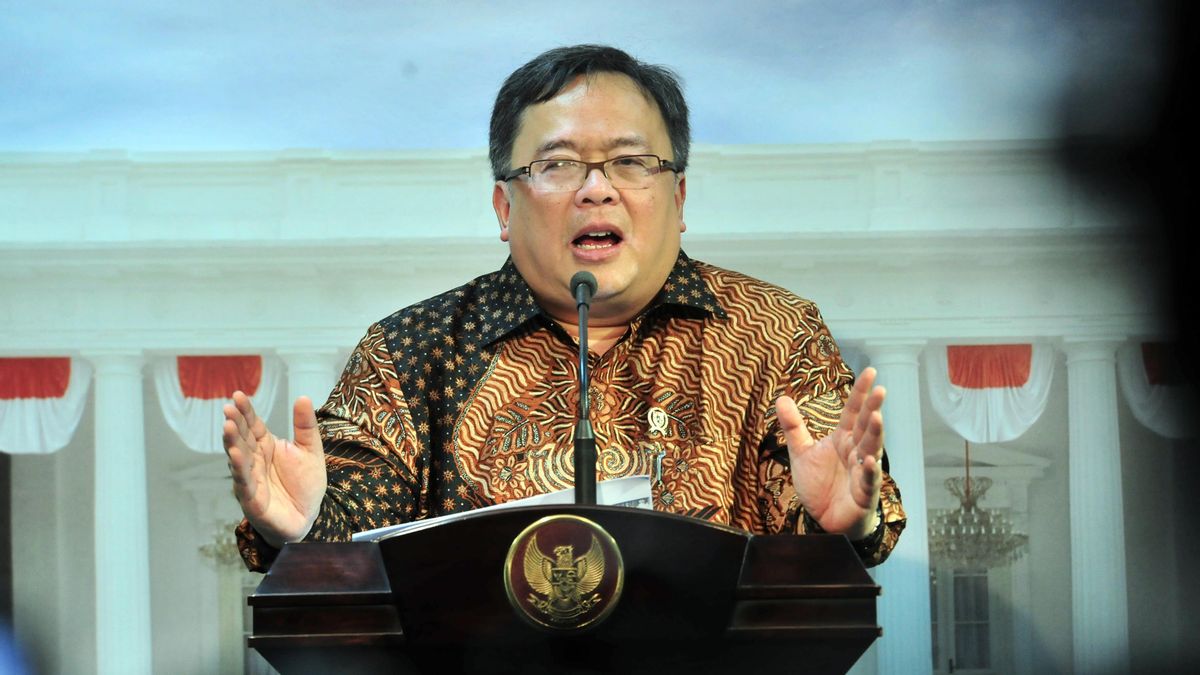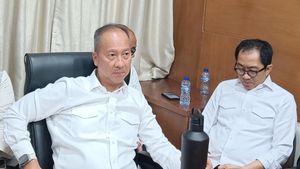JAKARTA - Indonesian Research and Technology Minister / Head of the National Innovation Research Agency (Menristek / BRIN) Bambang Brodjonegoro appreciates the presence of GeNose, a tool for screening COVID-19 through exhalation. Bambang believes that this tool can be a solution in reducing Indonesia's dependence on imported Polymerase Chain Reaction (PCR) for COVID-19 testing.
"GeNose for us is an innovation to reduce screening tools originating from abroad," he said, in a webinar, Friday, January 15.
The government, said Bambang, at the beginning of the pandemic brought in many COVID-19 screening tools from various countries, but without clear standards. Thus, errors appear during field testing due to the inaccuracy of the tests being performed.
Furthermore, Bambang said, the presence of GeNose was a breakthrough to detect viruses in the community. This is because the screening carried out by the tool is not based on antibodies or antigens but on a volatile organic compound (VOC). These compounds can be used to distinguish people who are infected or not.
"We really welcome GeNose because apart from being part of the Covid-19 Research and Innovation Consortium, it is also a form of synergy between the government, researchers and the business world," he explained.
Bambang hopes that GeNose can continue to improve its accuracy. Because, it really determines the process of tracking, tracing, testing and handling the handling of COVID-19 in the country, as well as the success of the movement of the national economy.
"In terms of research, of course, it must always be updated. Moreover, machine learning is used, which means that the level of accuracy will be better if improvements are made to the software or by using more data which is the input of the machine. You should not be satisfied with the type GeNose is out now, but must continue to be upgraded or improved, "he said.
On the same occasion, Deputy Minister of Health, Dante Saksono, assessed that GeNose is an example of innovation for the nation's children who have contributed to realizing the independence of national medical devices (medical devices).
Furthermore, Dante said, the government supports the development of medical equipment innovation for Indonesian researchers. However, development needs to pay attention to validation tests such as sensitivity, specificity, positive predictive value, and negative predictive value.
"The GeNose validation test needs to be improved. The sensitivity and specificity of GeNose is more than 90 percent but in the future, the validity test must always be studied further," said Dante.
The English, Chinese, Japanese, Arabic, and French versions are automatically generated by the AI. So there may still be inaccuracies in translating, please always see Indonesian as our main language. (system supported by DigitalSiber.id)













